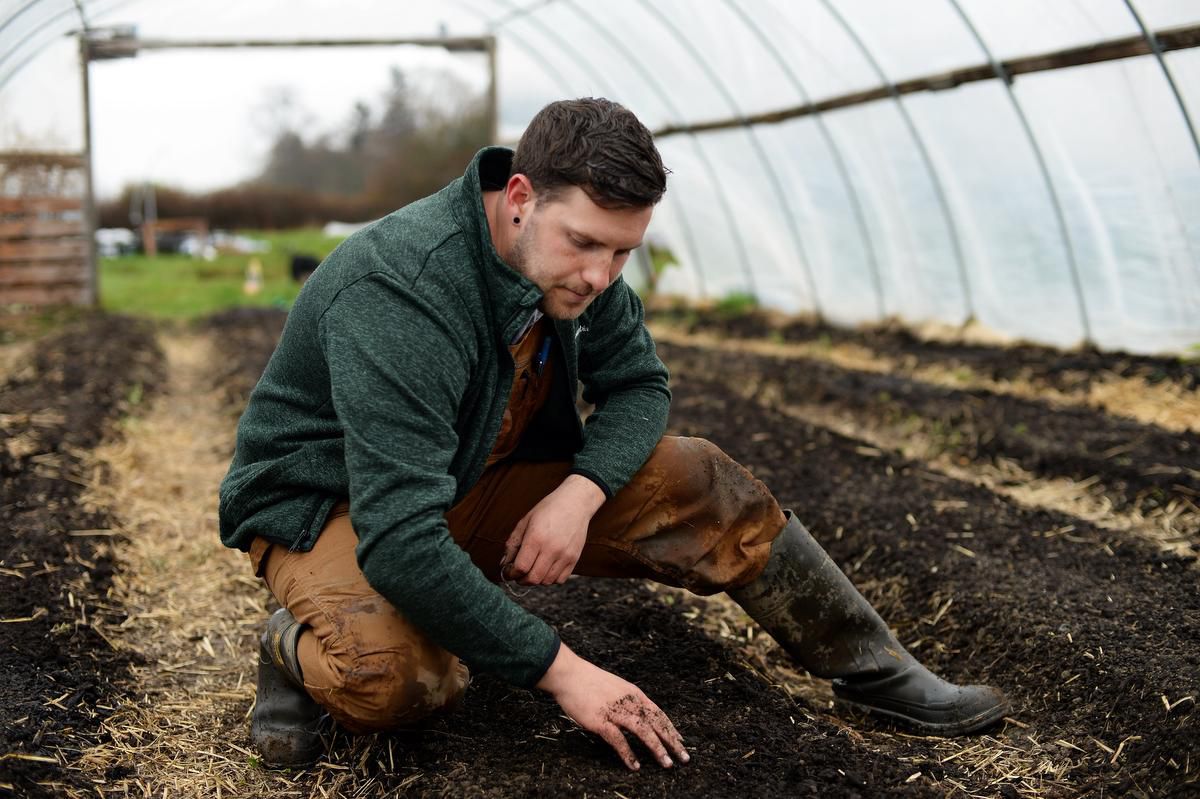Please note this information was last updated in April 2019. For some of the latest developments, visit our newsfeed.
Vancouver, BC, Canada
THE PROBLEM:
Just under ten miles south of Vancouver sits the municipality of Richmond, British Columbia, home to some of the best agricultural land in Canada. Advocates have been working to preserve this land for farming since 1973, when the threat of residential development spurred the creation of the Agricultural Land Reserve. Today, many in Richmond are enraged as they continue to fight against mansions built on farmland. In 2018, British Columbia announced an increase in taxes for foreign buyers of residential properties. This tax was not applied to agricultural land, and consequently it is now being developed for residential use by foreign entities. The homes under construction in Richmond are lavish estates that compromise food security, ruin arable land, and drive up real estate prices. Richmond’s zoning legislation currently limits these houses to an enormous 10,764 square feet, and allows for the construction of second homes that are over 3,000 square feet.
Many of the luxury homes being constructed in Richmond, Vancouver, and the nearby farming town of Delta are never even inhabited. They are built with the assumption that they will be purchased and flipped multiple times in what many believe is a money laundering scheme executed by foreign investors. This practice of real estate racketeering is particularly common in West Vancouver, where whole neighborhoods are comprised of seemingly abandoned multimillion-dollar homes.
Additionally, the Vancouver area suffers from a crippling trades shortage that is only exacerbated by the construction of these mansions. Many typical family homes are dilapidated simply because there are not enough workers to repair them. The few available tradesmen and women are preoccupied building luxury homes.
PROPOSED SOLUTIONS:
The advisory committee for the Agricultural Land Reserve has recommended limiting the size of houses built on agricultural land to 5,382 square feet. Nearly 80% of those surveyed in response to the committee’s report agreed with the regulation recommendations. Support for the regulation is bipartisan and backed by Richmond’s city planners, but some city councillors continue to vote against limiting house size. Many farmers in the community have announced their intentions to run for Richmond Council in the upcoming elections.
In response to the abundance of vacant homes, the City of Vancouver has implemented an Empty Homes Tax. Underutilized or vacant homes will now be subject to a tax equal to 1% of a property’s assessed value. Revenue generated by the tax will be used to expand affordable housing initiatives.
PROGRESS:
On December 17, 2o18, Richmond City Council passed an amendment to limit house size on agricultural land to 4,300 square feet.
Multi-generational farming families have band together to oppose the limitations on homes built on agricultural land. Many are concerned that restricting house size to 5,400 square feet will adversely affect their way of life.
On November 5, 2018, the province of British Columbia proposed new legislation that, if passed, would limit new homes built on farmland to 5,400 square feet. The Agriculture Land Commission would be able to issue exceptions to the law if it is determined that the building supports agriculture practices.
In August 2018 British Columbia’s Minister of Agriculture, Lana Popham, stated she would be stepping in to ensure additional regulations are placed on the development of Richmond’s agricultural land.
On February 22, 2019, the new zoning regulations went into effect. Houses built in the Agricultural Land Reserve will now be limited to 5,400 square feet.
— Cassie Dana, One Big Home Researcher
WESTERN INVESTORS:
Province follows Richmond's lead in limiting ALR homes sizes
VANCOUVER COURIER:
Province limits homes sizes in ALR
CBC:
New Agricultural Land Reserve regulations take effect
RICHMOND NEWS:
Year in review: ALR home sizes shrink
RICHMOND NEWS:
Richmond council limits ALR homes to 400 square metres
RICHMOND NEWS:
Richmond council hears from public on farmhouse size
CBC:
Big families raise concerns over provincial plan to limit size of ALR houses
RICHMOND NEWS:
Richmond council votes to cut ALR home sizes even further
DELTA OPTIMIST:
Province finally catches up to Delta on farm mansions
BC GOV NEWS:
New legislation makes it clear: Farmland is for farming
CBC:
City of Richmond votes in favour of limiting mega-mansions on ALR land
TIMES COLONIST:
Farmers applaud new restrictions on mega-homes
CITY NEWS 1130:
Province, Richmond move to restrict 'mega-homes' on farmland
ABBOTSFORD NEWS:
Most homes being built on Abbotsford farmland exceed new size limits
GLOBAL NEWS:
As dreams of home ownership fade, B.C. startup offers shares in Vancouver homes for as little as $1
THE STAR:
Small-scale farmers drawn into land-use debate in Richmond
THINKPOL:
Dilapidated homes, leaky condos, and crumbling mansions
STEELE THE SHOW:
Breton Crellin vs. the luxury housing market
RICHMOND NEWS:
Upcoming legislation will kill Richmond's farm mega-mansions: Agriculture Minister
PRICE TAGS:
Province says they are going to stop the private estating of agricultural lands
CBC:
'We have no alternative': White paper warns lost B.C. farmland could be catastrophic
RICHMOND NEWS:
RITE Richmond and Richmond Citizens' Association slates join forces in coalition
VANCOUVER PROFILES:
Breton Crellin
Stonemason, Vancouver, BC, Canada
“I make my living building homes no one can afford to live in, while I get priced out of the place I was born. In Vancouver, tradespeople are living out of their own cars, while the homes we build are left empty and used to launder money.”
View Breton’s profile
Michael Wolfe
City Councillor and High School Science Teacher,
Richmond, BC, Canada
“I’ve learned how close our city council is with developers of mega-mansions on farmland. This is why I have chosen to run for city council—to replace them and challenge the status quo, for a better future for all.”
View Michael’s profile




